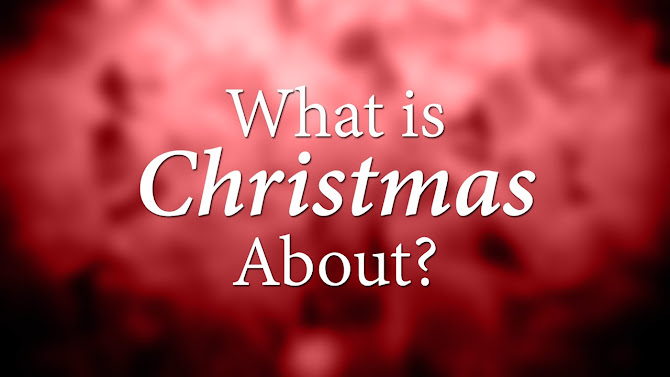The Dates of Christmas
Why do we celebrate on December 25th?
There are two specific theories for why we use the date of December 25th for Christmas.
First, people and religions of the day celebrated some sort of holiday around that time. From Jewish Chanukah to Pagan Winter Solstice to Germanic Yule to Roman Dies Natalis Solis Invicti (Birth of the Unconquered Sun); the sheer number of celebration days with trees, decorations, yule logs, mistletoe and feasts seem to point to a season of celebration to which Christians added the birth of Jesus as a counter-cultural event and possibly even an escape from the pagan holidays for early believers.
December 25th was the Saturnalia Festival of emancipation, gift giving and the triumph of light after the longest night. The Christian sees the truth implicit in this pagan tradition that reflects: Christ the Light of the world, His triumph over the night of sin in Luke 1:78-79:
"...Because of the tender mercy of our God, by which the rising sun will come to us from heaven 79 to shine on those living in darkness and in the shadow of death, to guide our feet into the path of peace.”
The second theory centers around the date “accepted” by the Western Church of March 25 as the Annunciation or Immaculate Conception of Jesus in Mary’s womb. December 25 is 9 months later and thus celebrated as the birthday of Jesus. Regardless of the possible reasons for the date, the church calendar was set in the West during Constantine’s reign while the Eastern Church held onto the date of January 6 for some time.
The Origin of Christmas Eve
For centuries, Christmas was celebrated not as a single day, but as a whole season in parts of the world, beginning with this day, December 24, Christmas Eve. Perhaps the practice of celebrating the evening before the big day is an echo from ancient Jewish reckoning. Among earlier Jews, a day began at six in the evening and ran until six the following evening. Had not Moses written: "An evening and a morning were the first day"?
Christmas means "Christ-mass." Although the date is a guess, the tradition of observing it goes back to at least the fourth century. Under the influence of the church, Christian traditions replaced pagan solstice festivals throughout Europe. Often the more innocent pagan practices (such as bringing in a Yule log, decorating with holly and the like) were carried over into the Christmas observance, transfigured with new meaning.
Christmas Celebrations
Christmas celebrations include spending time with the family, decorating the entire house, inside and out and shopping, for friends and relatives. Spending Christmas with the family is very important. On this day, all family members spend time in baking cookies, making fudge and preparing a big Christmas dinner, with all the trimmings. The children love to see each other and spend the day playing games and sharing their new gifts and toys that Santa Claus brought for each of them.

Everyone feels fortunate to have their family at Christmas time. The year's most celebrated holiday on December 25th is important both for homes and churches worldwide. The meaning for Christmas is to recognize Christ's birth, of which the exact date is not known. The celebration of Christmas incorporates :


